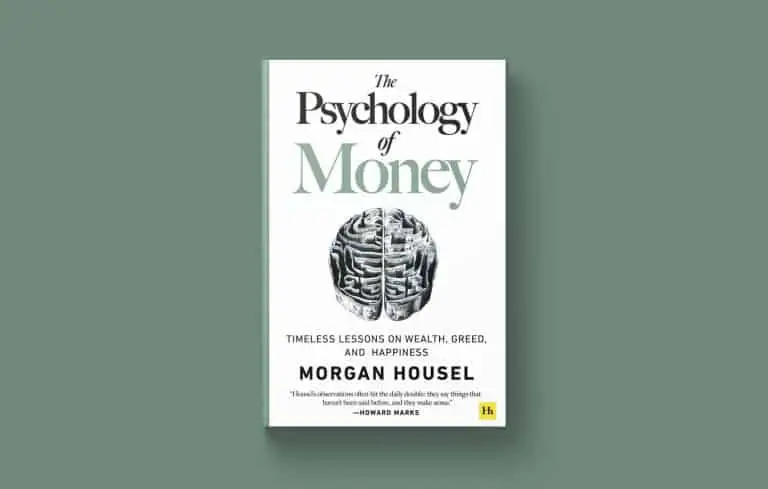10 Most Dangerous Money Myths: A Comprehensive Guide
Money is a crucial aspect of our lives, and it’s no surprise that we have our own beliefs and opinions for better or worse short- and long-term financial success.
However, some of these beliefs are nothing but myths that can cause harm to our finances in the long run.
In this article, we’ll explore the 10 most dangerous money myths that people still believe in and how to avoid them.

Photo by Vitaly Taranov on Unsplash
Introduction to money myths
Money myths have been around for ages, and some of them are so deep-seated that we believe them without questioning their validity.
Have you ever wondered if the money myths you believe in are actually true?
Are they hampering your financial growth?
Contrary to popular belief, having a high income does not guarantee financial security. Many people believe that if they earn enough money, they will automatically be wealthy. However, this is not always the case.
Financial security is not just about how much you earn but also about how you manage your money. Saving, investing, and making smart financial decisions are crucial to achieving financial stability.
Another common money myth is that credit cards are bad and should be avoided at all costs. While it’s true that credit card debt can be detrimental to your financial health, credit cards themselves are not inherently bad. Credit cards can help you build credit and earn rewards when used responsibly.
It’s all about using them wisely and paying off the balance in full each month.
So, are you ready to debunk these money myths and start making smart financial decisions? Join us as we explore some of the most pervasive money myths and provide actionable tips to help you take control of your finances.
Myth 1: Money Can Buy Happiness
The first myth on our list is the belief that money can buy happiness. While money can certainly make life easier, it doesn’t guarantee happiness. Many rich people still suffer from depression and anxiety, while many people with little money are still happy.
Money can help make you happy by making the things most important to you possible. Things like experiences, time with family and friends and allowing you the time and space to pursue goals in every area of your life.
Tip: spend your money on the things that bring you most value in life – it probably wont be stuff.
Myth 2: The More Money You Have, The Better
Another common money myth is the belief that the more money you have, the better your life will be.
However, having too much money can actually be a burden. It can lead to feelings of isolation and anxiety and make you a target for fraud and theft.
Figuring out how much is enough for you to live a comfortable fulfilling life is the key to happiness.
Tip: understand what it costs you to live a good life, save and invest to have that amount of money worry-free.
Myth 3: You Can’t Be Rich Without Inheriting Money
Many people believe that the only way to become rich is to inherit money from a wealthy family member.
However, this is not true. While inheritance can certainly help, some many self-made millionaires and billionaires started from nothing.
Starting early (if you can) automating your savings and investments, living within your means and improving your financial education are all ways to build your wealth with or without an inheritance or large windfall.
Tip: Saveing and investing on autopilot will make you rich without needing an inheritance.
Myth 4: You Need to Be an Expert to Invest in Stocks
Investing in stocks can seem daunting, especially if you’re not a financial expert.
However, you don’t need to be an expert in stock investing. With a little research and guidance, anyone can invest in stocks and potentially make a profit.
Investing in low-cost, globally diversified index funds is a simple way to capture the returns of the world’s great companies without spending all your time researching company reports.
Tip: Keep things simple with index funds; you will do very well over the long term.
Myth 5: Debt is Always Bad
Debt is often seen as negative, but it’s not always bad.
There are different types of debt, and some can actually be beneficial, such as a mortgage or a student loan.
However, managing debt carefully is important and avoiding taking on more debt than you can handle.
Always make sure you can pay the money back and ideally only use debt for things that will appreciate in value – houses, education and business, not things that will immediately lose value like cars, TVs and holidays.
Tip: Be clear on the debt you need to take vs want to take – needs vs wants. Figure out if there is a way to avoid taking on debt and or how will plan to pay it off.
Myth 6: Credit Cards are Evil
Credit cards are often demonized as a source of debt and financial ruin. However, credit cards can be a valuable tool if used responsibly. They can help you build credit, earn rewards, and protect you against fraud.
Credit cards can also help you earn cash back and reward points, but they do need to be managed sensibly and paid off in full every month.
Tip: Use credit carefully. This is where you need to know yourself and realise that too much credit, like too much chocolate, will not help in the long run.
Myth 7: A High Income Guarantees Financial Security
Many people believe that a high income guarantees financial security. However, this is not always the case. High earners can still fall into debt and financial trouble if they don’t manage their money properly.
It’s not about what you earn it’s more about what you keep. You can earn 100k and spend 101k so still be no better off.
More salary might mean more spending.
Tip: Manage your money well, and what you earn will be less critical than what you keep.
Myth 8: Renting is Always Throwing Away Money
Some people believe that renting a home is throwing away money, and that buying a home is always a better investment.
However, this is not always true. Renting can be a more affordable and flexible option, especially in certain situations or locations where buying a home may not be feasible or financially wise.
Renting means you can still more easily move to another area.
Once you have a house, effectively a big rock, moving is a lot more tricky and costly.
Tip: be clear on what your accommodation is for, a place to live for now or for 5 years or more – this will help you decide if buying is the right this for you at this moment.
Myth 9: You Should Always Follow the Advice of Financial Gurus
Many financial gurus and experts offer advice on how to manage money and invest “wisely”.
However, not all advice is applicable or relevant to everyone’s unique financial situation. It’s important to do your research, understand your goals and risk tolerance, and take any “advice” with a grain of salt.
What worked for the financial guru may or may not work for you; it may be that that opportunity has passed or is actually way too risky for you in your circumstances.
Ensure you understand what has always worked for building wealth, stocks, property and businesses and what hasn’t had the track record to know if it works for everyone or just now.
Tip: Read some great books like, the Simple Path to Wealth, Your Money or Your Life and The Millionaire next door to get yourself a good grounding in financial education.
Myth 10: You Don’t Need to Save Money if You’re Young
Lastly, some people believe they don’t need to save money if they’re young and have plenty of time to earn and save later in life.
However, saving early can have significant benefits in the long run, such as allowing for compound interest to accumulate and providing a safety net in case of unexpected expenses or job loss.
The sooner you start saving and investing, the longer it has to compound.
The sooner you start, the cheaper it will also be. Compounding your wealth takes much less money if you have a long time.
But if you have left it late to save, it will take a lot more money to do the heavy lifting for you.
Like many things in life, you probably should have started it years ago.
Tip: Start now, save what you can and watch it compound year over year.
FAQ: 10 most dangerous money myths
Can money buy happiness?
Is all debt bad?
Should I always follow the advice of financial gurus?
Is renting always a bad financial decision?
Why is it important to save money early?
Conclusion: Dangerous money myths
In conclusion, it’s important to be aware of the myths surrounding money and to avoid falling into the traps they can set. By understanding the realities of money management, we can make better financial decisions and build a more secure and fulfilling financial future.






